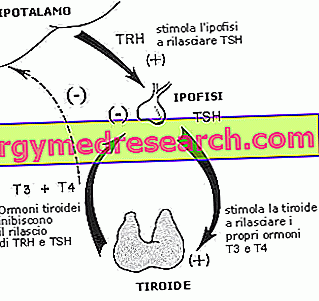ZANIZAL ® is a drug based on Nizatidine.
THERAPEUTIC GROUP: Antireflux - Antiulcer - H2-receptor antagonists
IndicationsAction mechanismStudies and clinical effectiveness Usage and dosage instructionsWarnings Pregnancy and lactationInteractionsContraindicationsUndesirable effects

Indications ZANIZAL ® Nizatidina
ZANIZAL ® is indicated in the treatment of those morbid manifestations associated with gastric hyperacidity.
More precisely, this medicine is particularly indicated in the treatment of duodenal ulcer, gastric ulcer, ulcer associated with treatment with non-steroidal anti-inflammatory drugs and gastro-oesophageal reflux oesophagitis.
Mechanism of action ZANIZAL ® Nizatidine
The nizatidine contained in ZANIZAL ® is one of the analogues developed starting from cimetidine, with which it shares a mechanism of action and chemical structure.
This active ingredient, in fact, introduced orally, is rapidly absorbed at the gastro-intestinal level, reaching the maximum plasma concentration within two hours, with bioavailability that is over 70% of the total dose taken, therefore higher than its predecessors.
Through the circulatory stream, it selectively reaches the histamine H2 receptors, inhibiting the action, responsible, through the activation of the adenylate cyclase and the AMCP, of the activation of an H + / K + exchanger, and of the acidification of the stomach contents .
The selective blocking of these receptors, normally activated by acetyl-choline, gastrin and histamine, allows optimal control of both basal and meal-induced gastric acidity, thus avoiding the onset of hyperacidity.
After its action, with a fairly rapid half-life, nizatidine is eliminated mainly through the renal route.
Among the most important advantages compared to other active ingredients of the same pharmaceutical category it is possible to observe the most effective biology activity and the absence of inhibition of the cytochrome p450, involved in the metabolism of different active ingredients.
Studies carried out and clinical efficacy
1. NIZATIDINE AND OTHER H2 ANTAGONISTS IN EROSIVE ESOFAGITE
Gastroesophageal reflux is often accompanied by erosive esophagitis, with sometimes histologically important changes. In this comparative study, nizatidine proved to be particularly useful both in the remission of the disease and in the prevention of recurrences, establishing itself as the most effective H2 histamine receptor antagonist.
2. NIZATIDINE IN PEDIATRIC AGE
This study represents one of the few works in which the efficacy and safety of nizatidine administered in the pediatric age was tested. Despite the low number of patients enrolled, which does not allow us to draw statistically significant conclusions, the therapy proved to be effective in reducing the symptoms associated with gastroesophageal reflux in 82% of patients treated with adverse reactions that met expectations.
3. NIZATIDINE AND WEIGHT INCREASE IN PSYCHIATRIC PATIENTS
In many schizophrenic patients, who have undergone drug therapy, an increase in weight has probably been noticed, probably associated with the de regulation of hormones, in particular leptin. This study partly justifies the anti-overweight effectiveness of nizatidine, demonstrating how the concomitant administration of this drug can prevent weight gain, probably by acting on leptin levels.
Method of use and dosage
ZANIZAL ® capsules of 150-300 mg of nizatidine:
the therapeutic scheme for the treatment of ulcers usually involves taking 150/300 mg nizatidine daily for at least 4 weeks, a period useful for healing them.
If an effective therapeutic response has not been observed, it would be useful to prolong the therapy for another 4 weeks.
In any case, the optimal dosage and the timing of intake should be established by the doctor, after a careful evaluation of the patient's clinical picture and related therapeutic goals.
Warnings ZANIZAL ® Nizatidine
ZANIZAL ® should be administered with particular care, and under close medical supervision in patients with reduced renal and hepatic function, in order to avoid an accumulation of potentially dangerous metabolites.
It would also be useful to carry out a careful screening of the patient's gastric pathologies, before resorting to the use of nizatidine, so as to prevent this active ingredient from masking some important signs necessary for a timely diagnosis.
The presence of drowsiness, headache and dizziness among the side effects associated with ZANIZAL ® therapy could make the use of machinery and driving vehicles dangerous.
PREGNANCY AND BREASTFEEDING
The absence of relevant studies regarding the use of nizatidine in pregnancy does not allow to establish the safety profile of this active principle on the health of the fetus, thus being contraindicated both during pregnancy and in the subsequent period of breastfeeding.
Interactions
The inability of nizatidine to inhibit the activity of cytochrome p450 allows its use in conjunction with drugs normally metabolized by this enzyme, without any alteration of the pharmacokinetic properties.
This characteristic represents one of the most important advantages associated with ZANIZAL ® therapy compared to other H2 receptor antagonists.
Contraindications ZANIZAL ® Nizatidine
ZANIZAL ® is contraindicated in those patients who are hypersensitive to nizatidine or other active ingredients in the same pharmaceutical category, given the possible development of cross-reactions.
Undesirable effects - Side effects
The most documented side effects associated with ZANIZAL ® therapy were sweating, hives and drowsiness, with no particular clinical implications.
On the other hand, especially in patients at risk, the incidence of hepatocellular damage with increased serum transaminases, reduced sexual libido, mental conduction, thrombocytopenia, hyperuricemia, anaphylaxis and hypereosinophilia in case of hypersensitivity was observed.
In any case, the symptoms were reversible once the therapy was suspended.
Note
ZANIZAL ® a drug sold only under medical prescription.



